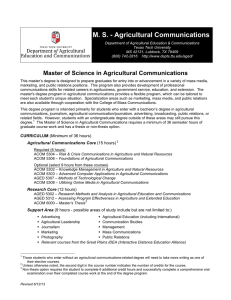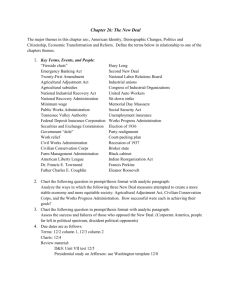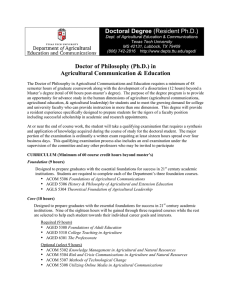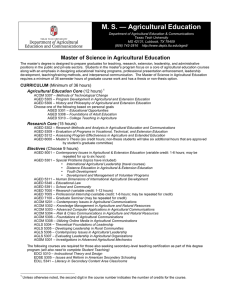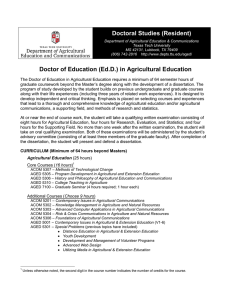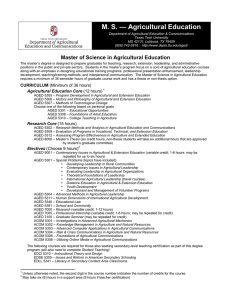M. S. - Agricultural Communications
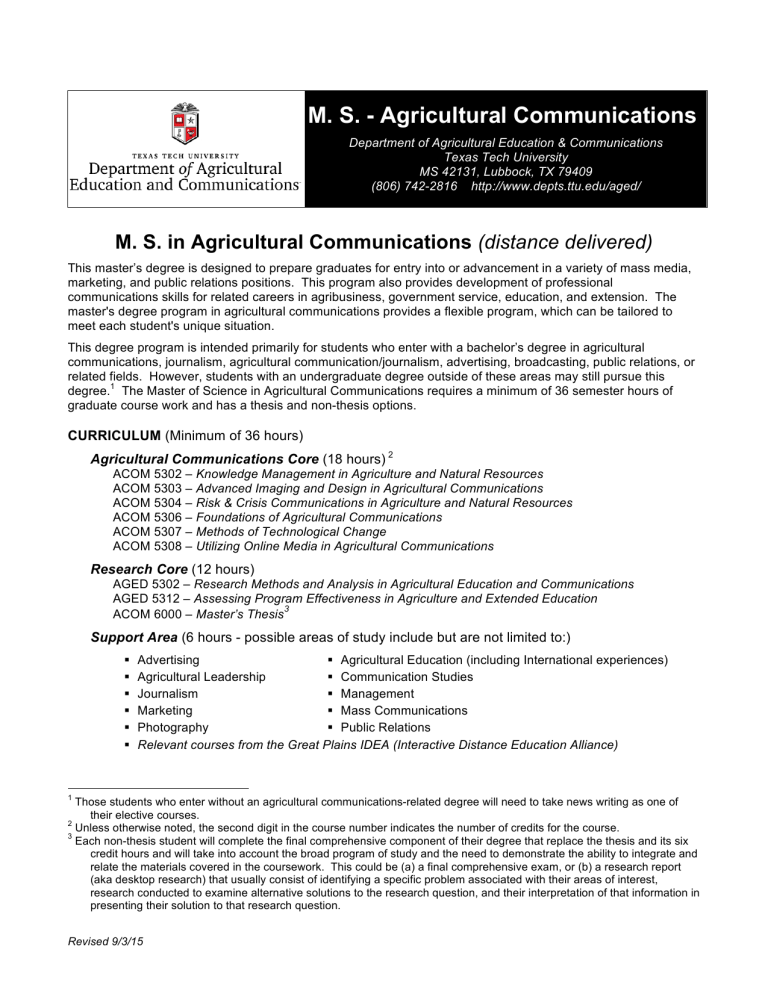
M. S. - Agricultural Communications
Department of Agricultural Education & Communications
Texas Tech University
MS 42131, Lubbock, TX 79409
(806) 742-2816 http://www.depts.ttu.edu/aged/
M. S. in Agricultural Communications (distance delivered)
This master’s degree is designed to prepare graduates for entry into or advancement in a variety of mass media, marketing, and public relations positions. This program also provides development of professional communications skills for related careers in agribusiness, government service, education, and extension. The master's degree program in agricultural communications provides a flexible program, which can be tailored to meet each student's unique situation.
This degree program is intended primarily for students who enter with a bachelor’s degree in agricultural communications, journalism, agricultural communication/journalism, advertising, broadcasting, public relations, or related fields. However, students with an undergraduate degree outside of these areas may still pursue this degree.
1
The Master of Science in Agricultural Communications requires a minimum of 36 semester hours of graduate course work and has a thesis and non-thesis options.
CURRICULUM (Minimum of 36 hours)
Agricultural Communications Core (18 hours)
2
ACOM 5302 – Knowledge Management in Agriculture and Natural Resources
ACOM 5303 – Advanced Imaging and Design in Agricultural Communications
ACOM 5304 – Risk & Crisis Communications in Agriculture and Natural Resources
ACOM 5306 – Foundations of Agricultural Communications
ACOM 5307 – Methods of Technological Change
ACOM 5308 – Utilizing Online Media in Agricultural Communications
Research Core (12 hours)
AGED 5302 – Research Methods and Analysis in Agricultural Education and Communications
AGED 5312 – Assessing Program Effectiveness in Agriculture and Extended Education
ACOM 6000 – Master’s Thesis
3
Support Area (6 hours - possible areas of study include but are not limited to:)
!
Advertising
!
Agricultural Leadership
!
Journalism
!
Marketing
!
!
!
!
Agricultural Education (including International experiences)
Communication Studies
Management
Mass Communications
!
Photography !
Public Relations
!
Relevant courses from the Great Plains IDEA (Interactive Distance Education Alliance)
1
Those students who enter without an agricultural communications-related degree will need to take news writing as one of their elective courses.
2
Unless otherwise noted, the second digit in the course number indicates the number of credits for the course.
3
Each non-thesis student will complete the final comprehensive component of their degree that replace the thesis and its six credit hours and will take into account the broad program of study and the need to demonstrate the ability to integrate and relate the materials covered in the coursework. This could be (a) a final comprehensive exam, or (b) a research report
(aka desktop research) that usually consist of identifying a specific problem associated with their areas of interest, research conducted to examine alternative solutions to the research question, and their interpretation of that information in presenting their solution to that research question.
Revised 9/3/15
